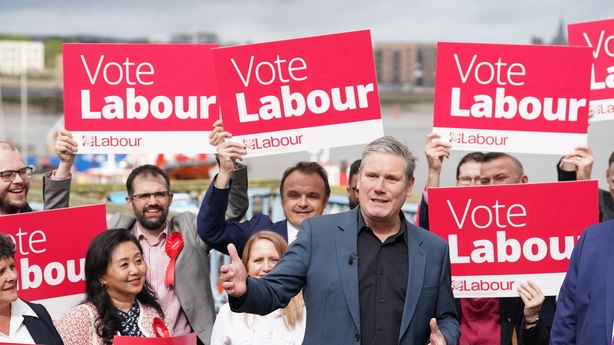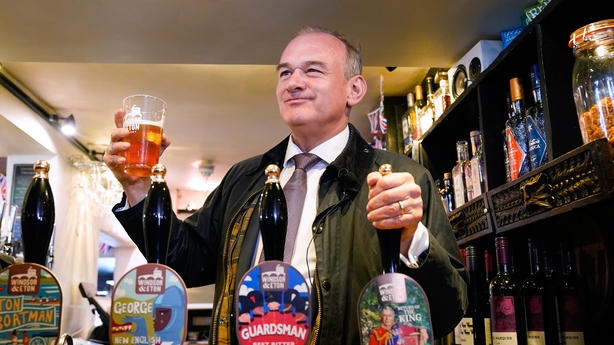It was a bad election for the Conservative Party whether or not the figure of 1,000 seat losses is reached in the end.
As has been pointed out, they were starting from a low base as they had already lost 1,300 councillors the last time these same areas faced election four years ago.
And it is clear that Labour have achieved their clear objectives. They wanted to be able to win in Brexit supporting areas that turned to the Conservatives in the 2019 general election - the so-called Red Wall areas.
They achieved that in Stoke-on-Trent in the Midlands where they won control of the council. In the North East, in Middlesbrough, they are expected to win control of the council. But they pulled off a shock by winning the Mayor election and narrowly unseating a high profile Independent.
The Labour party also barely missed out on gaining control of nearby Hartlepool where they came up just three votes short. That was a council area where the Conservatives had hoped to gain control having won a by-election there in 2021.

But Labour also needs to win in 'Middle England' and they achieved this in Plymouth and Swindon by winning control, even though in each area only one third of seats were up for grabs.
And they also won Medway council in Kent for the first time since it was created in 1998. Keir Starmer had personally campaigned there and chose it for his first victory speech of the day.
Both Labour and the Liberal Democrats are hoping to make inroads in Kent. This a true blue Home County where 16 of its 17 general election constituencies have Conservative MPs.
Read more: Conservative Party suffers losses in English local elections
However, polling expert Prof John Curtice has pointed out that Labour's overall vote share has only marginally increased since last year's local elections - even though it is clear that the Tories have lost ground.
Labour will point to the fact that these elections do not include areas in which they traditionally do well like London or Wales. Scotland was not involved either and that is where they could legitimately hope to improve next time.
Also, the Liberal Democrats tend to do well in local elections. They made big gains and this will be causing dread for Tory MPs who fear losing comfortable middle class areas to them - the so-called Blue Wall areas.
The Liberal Democrats won control of Stratford-on-Avon which is the constituency of former Chancellor Nadhim Zahawi.
The Lib Dems also caused a wipeout for Tories in Bath and North East Somerset. Here, the Conservatives have gone from holding a majority four years ago to having only three councillors left. That area includes the constituency of prominent Brexiteer Jacob Rees Mogg.

The question is how this will affect national politics? There is reported to be disquiet in the Conservative ranks which could manifest itself in demands for tax cuts.
Prime Minister Rishi Sunak has said the results are disappointing, but he put the blame on problems caused by his predecessors.
The Conservatives were also accused of managing expectations in advance of polling by putting it out that their losses could be as high as 1,000 seats. The theory being that they expected to lose less and could then claim a consolation.
Professor Curtice had said 1,000 losses was possible based on early declarations and it had been predicted as a worst case scenario by other commentators.
But before the poll the conventional wisdom was that a loss of any more than 500 seats would pose difficulties for the current Tory leadership.
Either way Labour have strengthened their claim to be the party to form the next government and are hoping for a bandwagon effect.
However, there is still has a year to go to hold onto their gains and they will not want to have to share general election spoils with the Liberal Democrats and Greens who can also claim to be on a winning streak.







